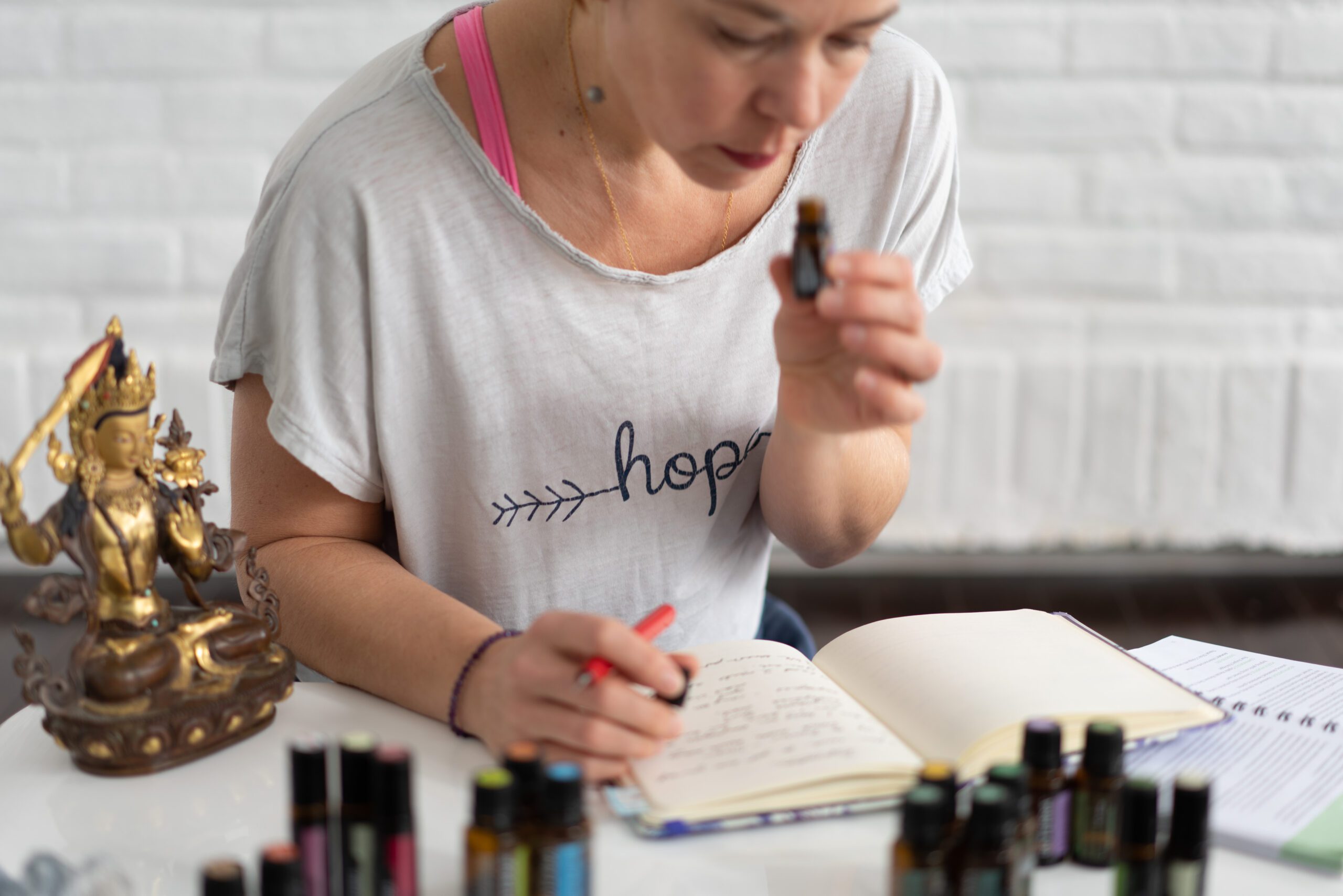
Seasonal affective disorder (SAD) is a mood disorder, affecting people with otherwise normal mental health. If you experience this, you are not alone and equally as important there is help available.
Symptoms include a persistent low mood, a loss of interest in normal everyday activities, feeling irritable, tearfulness, low self-esteem, difficulty waking up in the morning, some experience cravings for carbohydrates, lack of energy, difficulty concentrating or completing tasks, withdrawal from friends, family and social activities and decreased sex drive. Many of these symptoms are shared with clinical depression, yet the main distinguishing factor of SAD is its seasonal character. Research is still unclear on what exactly causes SAD or low mood in the Winter months, but interestingly, it seems to be more prevalent in women than men.
Some theories include :
Serotonin deficiency. Serotonin is one of the feel-good hormones, like endorphins and dopamine. Vitamin D is the vitamin responsible for producing this hormone, and we know with less exposure to the Sun in the Winter our levels can drop.
Irregular melatonin levels. Melatonin is a hormone that controls your sleep cycles and wakefulness. When it’s dark, your body produces more melatonin, causing you to feel tired. That’s why you may feel sleepy more often in the winter.
Upset circadian rhythm. Also referred to as your biological clock, your circadian rhythm can be disrupted as the daylight hours grow shorter and shorter. Your body may have a hard time adjusting to a normal sleep schedule because of this disruption.
The good news is that there is a way to lift your mood naturally. Winter is naturally a time to slow down, just as nature shows us, but it doesn’t mean you have to be stuck in feelings of despair and disinterest. Some simple ways you include taking a high quality Vitamin D supplement, getting out into the Sunshine as much as possible on brighter days and incorporating Essential Oils into your routine.
How do Essential Oils work?
Essential Oils have a positive effect on your mood. When you inhale an Essential Oil the small compounds send signals to the Olfactory system and these tell the brain to call on the appropriate neurotransmitters to regulate your mood. Studies show that Essential Oils such as Bergamot, Lavender and Lemon trigger the brain via the olfactory system to release mood regulating hormones of serotonin and dopamine, both of which are associated with SAD. Essential Oils have a balancing effect on the mood, binding to cell receptor sites, blocking, activating & modulating the impact of neurotransmitters. In a 2013, article researchers at Xiamen University, China, reported “Most studies, as well as clinically applied experience, have indicated that various essential oils, such as lavender, lemon and bergamot can help to relieve stress, anxiety, depression and other mood disorders. Most notably, inhalation of essential oils can communicate signals to the olfactory system and stimulate the brain to exert neurotransmitters (e.g. serotonin and dopamine) thereby further regulating mood. Source
Which Essential Oils help?
Citrus Oils
Powerful at lifting energy upwards and outwards. They evoke sunnier days and have an expansive uplifting effect. Bergamot and lemon oils are among the most widely-researched for positive effects on mood. Rodent studies show that lemon oil is antidepressant (Komori et al 1995) and invigorating (Komori et al 2006). It also reduces anxiety and boosts both serotonin and dopamine (Komiya et al 2006), two neurochemicals that are often reduced in SAD. The citrus oil that has been most widely researched for mood effects in humans is Bergamot. Bergamot is a key Essential Oil for balancing and harmonising, while bringing perspective. Studies show that Bergamot oil inhalation, from diffusion or water- based sprays, has shown significant effects in the reduction of anxiety in 53 patients awaiting surgery, compared to 49 control patients (Ni et al 2013) and a reduction of stress hormone cortisol, along with reduction in self-reported fatigue and anxiety in 41 healthy women, within 15 minutes (Watanabe et al 2015).
Sandalwood
Traditionally, Buddhists used sandalwood oil as a therapy for anxiety, depression and insomnia, while in Tibetan medicine, sandalwood fragrance is used to ease emotional weariness and enervation resulting from excessive mental work and intellectual exertion. Research reveals that inhaled sandalwood oil is calming, while improving mood and increasing attentiveness (Heuberger et al 2006). The energetics of the sweet woody Sandalwood are gentle and supportive.
Melissa
Distilled from Lemon Balm, Melissa is for heart courage. Sometimes referred to as the Oil of Light, Melissa is the big gun for transforming low mood and some refer to Melissa as a powerful way to regulate the Pineal Gland. It is especially helpful in assisting “the transformation of stagnant feelings and emotions, especially when these involve discouragement and loss of hope” (Peter Holmes, Aromatica).
Mood Elevating Blend
Bergamot
Lavender Flower/Leaf
Clary Sage Flower/Leaf
Hawaiian Sandalwood Wood
Ylang Ylang Flower
Melissa Flower/Leaf essential oils
Sourcing your Oils
Sourcing Essential Oils is an important process. Not only do we want to ensure the Oils are pure, but also that the Farmers and distillers have been fairly treated and recompensed appropriately for their work. Sadly around 80% of Essential Oils on the market, from High Street to online traders are not what they claim to be, and are in many cases highly adulterated, even synthetic versions of the labeled Oil. Precious Oils such as Sandalwood and Melissa have an even higher chance of adulteration because of the cost of producing pure and tested quality Oils. When buying Essential Oils, be sure to fully investigate the quality of your Oils before you make a purchase and wherever possible ask for a Gas Chromatography reading which will indicate if any toxins, synthetics or alternatives have been added. Otherwise it could be that you do more harm than good to your system.
It is comforting to know that you can access natural solutions from the plants in the form of Essential Oils that can help support and shift your state.

Amelia Adrian has a long standing Yoga & Meditation Practice rooted in the traditions of Tibetan Buddhism, Hatha, Katonah & Yin Yoga. A clinical Aromatherapist, she has been working with Essential Oils for over 7 years integrating them at home to care for herself, her family, students and clients in a completely natural way. Amelia teaches Aromayoga combining both her passions in one therapeutic modality, as well offering stand alone educational sessions for Essential Oils. Amelia has found the practices of using Yoga and Essential Oils provides a deeply healing space, bringing an opportunity to find balance and a natural rhythm to our lives. Amelia leads essential oil starter sessions online. You can book and learn more here
